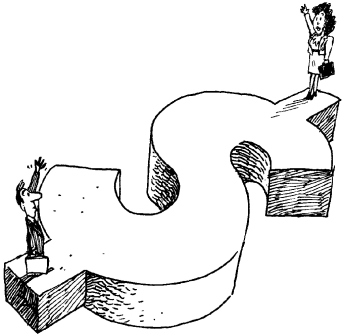Mary Potter
Thursday, September 3, 2015 2:50 pm
|
The gig economy has no standard definition, according to Monica Oss of OpenMinds.com, "but it's a shorthand reference to the growing numbers of Americans who no longer hold a regular "job" with a long-term connection to a particular organization..." The Gig Economy-Welcome to the World of Microentrepeneurs
For those of us in West Kentucky, getting our heads around the gig economy is not so easy. For city dwellers, programs like Uber, the we'll-pick-you-up driver company is one example. Few connections to the center, drivers come and they go. Other examples are only an app away.
The gig economy is what we old timers called "independent contractors" and thought of builders and plumbers and electricians. In a perfect world, they came, they worked, they got paid, they left. The customer may or may not ever hire them again. They were under no obligation to come for another job. The customer was under no obligation to call them again.
That worked fairly well for those with unique skills who could charge to do things the rest of us are loathe to do. Like working on a sewer or risking life and limb playing with electricity or power tools. The independent contractor is now a "microentrepeneur" with all the risks that entails - finding customers- paying taxes and insurances and supplying one's own tools. It is a risky business and the majority of the work force is not cut out for the risk.
Millennials, those born between the early 1980s and 2000, are being herded into a gig economy whether they want to be there or not. Jobs that were traditionally company jobs are now gigs. Cab companies, despite support from governments from India to New York City, are following the dodo into extinction. Factory jobs? Find the right temp agency and work alongside a union guy for half the pay (or less). Journalists are being laid off all over the country and then being asked to write articles on their personal laptops for a fraction of what they went into the office to do.
Gigs may be great for some musicians with day jobs to support them. Few musicians could rely on their musical talents for their daily bread. For the lucky few, it was a risk worth taking.
Gigs are scary for anyone who has to get up every morning and figure out how to pay the bills. In their article for Democracy: a Journal of Idea, Nick Hanauer and David Rolf point out that Americans born in the late baby boom held twelve jobs in adulthood. They predict that "thirty years from now, the average American might well work for four or five or even more employers in a single week." (emphasis added). Shared Security, Shared Growth by Nick Hanauer and David Rolf DemocracyJournal.org
It is also scary for a US economy built on consumerism. If one cannot earn money, one cannot spend money. That ripples throughout the whole economy. The same employers reliant on purchasing power may find that their bottom lines are being affected. That hasn't proved true yet.
No one seems to know how to get back to the way it was before - if it is even possible to do that. Lawsuits are already beginning to trickle into courts as workers seek to have their role redefined from independents to employees. Uber is subject to one such suit. Hanauer and Rolf suggest that a micro-economy should have micro-benefits. Workers can accrue similar benefits, like insurance and vacation pay, through what they call a "Shared Security Account." Like social security, there would be automatic payroll deductions regardless of the employment relationship that would be prorated and portable.
As with so many 21st century innovations, the gig economy has proved good for some and awful for many. It is a problem that the Millennial Generation will have to solve. It can only be hoped they will do a better job than their elders coming up with a solution.
